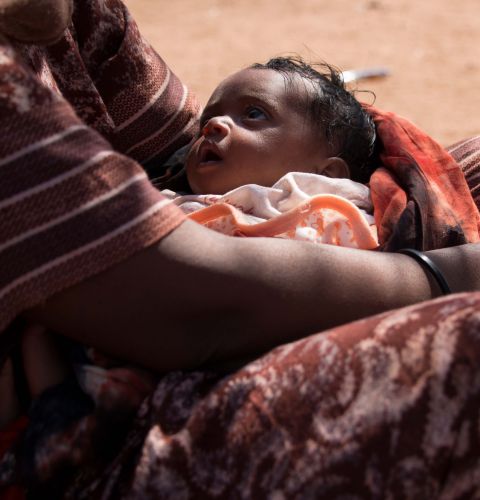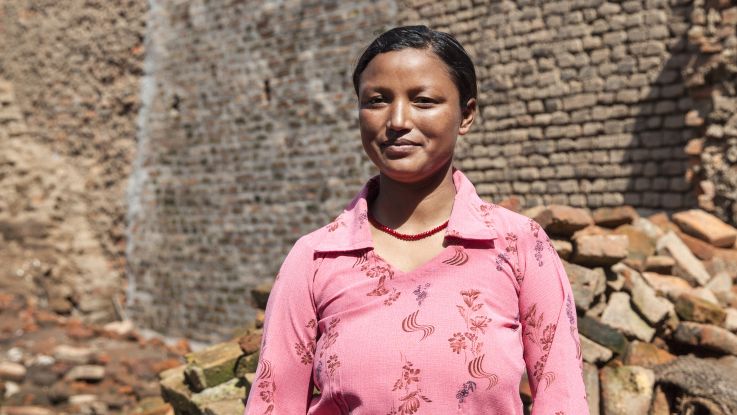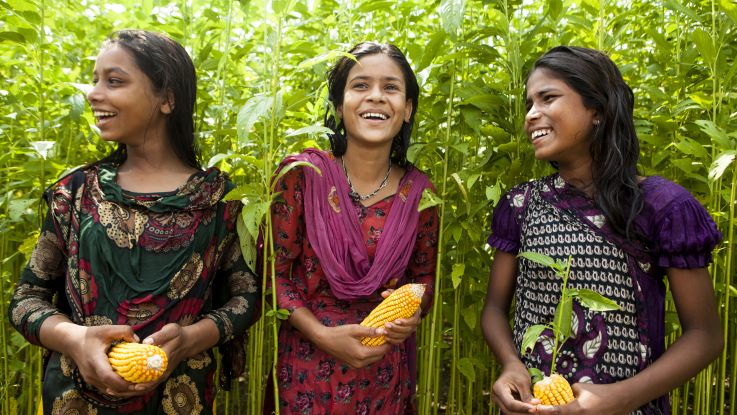Famine
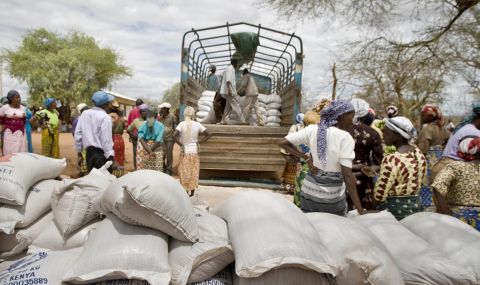
A lorry load of food aid arrives in Nguni town, Kyuso District, Eastern Kenya for ActionAid's Food For Assets programme. Beneficiaries received a ration each month in exchange for 12 days work on projects that improve farmland or harvest rainfall.
ActionAid’s approach to famine
As with all emergencies, ActionAid has a two-pronged approach: resilience and response.
In high-risk countries ActionAid works with vulnerable communities to improve their ability to cope with drought. We:
- train people to improve their agricultural practices;
- help people, especially women, to create alternative livelihoods;
- provide people with sustainable water sources.
Once the situation looks like it's becoming too severe for people to cope or adapt, it is crucial to launch an emergency response to get them basic food supplies as quickly as possible. We:
- distribute urgently needed food and water to families at risk;
- make sure that women and girls can safely access food and water;
- support women and girls at risk of sexual violence;
- and we help survivors of violence get the medical help they need.
The importance of acting early
Many studies have shown that an early response is significantly more effective than a later emergency intervention: it saves lives, minimises the devastating long-term consequences and costs less to deliver.
For people who are already hungry, immediate action to provide aid will prevent more serious long-term problems, such as children developing chronic malnutrition that could lead to poor health throughout their life, and farmers selling their animals or farming tools for food, meaning they no longer have a way to earn a living.
For people who are currently at risk, early action and preparedness is needed to build their ability to cope now and reduce the need for emergency aid in the future.
Why are women and girls worst affected by famine?
Women and girls are nearly always hit hardest in emergencies, and famine is no exception. Malnutrition, weakened immune systems and the resulting spread of disease put an additional strain on women’s traditional responsibility as care givers.
Fetching water becomes much more physically challenging as mums like Nimo travel further and further afield in their search. As a result, we have seen mothers taking their daughters out of school to help them carry their heavy load.
Displacement, conflict and having to walk longer distances all increase women’s and girls’ vulnerability to violence and sexual assault.
Within the home, women can also often face aggression and domestic violence as the burden to find food and water increases, and results in strained family relationships.
Often, owing to cultural customs, women eat last and least and have access to fewer options to migrate, access aid, information and credit.
ActionAid’s policy manager in Kenya, Ruth Masime, says:
As a result of the drought women and girls face a triple burden in some cases: to survive, care for their families and evade sexual violence in the process. Urgent action is needed to avert severe hunger, sexual violence and community breakdown.”

Nimo and her family desperately need food and water, Somaliland
ActionAid
Supporting struggling mums in Somaliland
In Somaliland, 35-year-old Nimo and her children walked for eight days in search of water. What they found instead was a trail of carcasses: cattle, goats and camels – the backbone of the country’s economy.
I breastfeed my six-month-old son, but he cannot get enough milk as I don’t have food.”
ActionAid is distributing life-saving food and water to mothers like Nimo, but more support is urgently needed as the situation rapidly worsens.
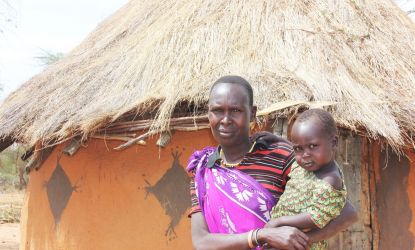
Hunger in Kenya
Chepochemuma, 35, lives in western Kenya.
Flash floods washed away her crops in 2016, and then a drought in 2017 caused a severe food shortage.
Like so many families, she has had to resort to hunting for anything edible she can find in the bush to feed her eight children. She said:
I am worried for tomorrow because there is high competition for wild fruits and vegetables.
If help doesn’t come through any time soon, we might die of hunger.”
Chepochemuna with her young daughter outside their home in western Kenya
ActionAid
Footnotes
- 1http://www.fao.org/docrep/010/i0275e/i0275e.pdf
Page updated 17 June 2024
